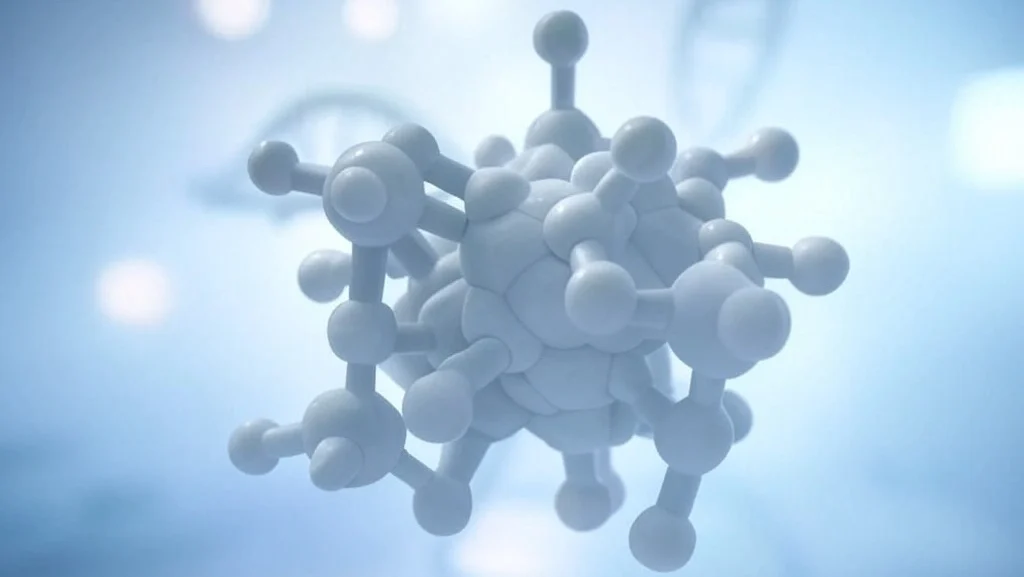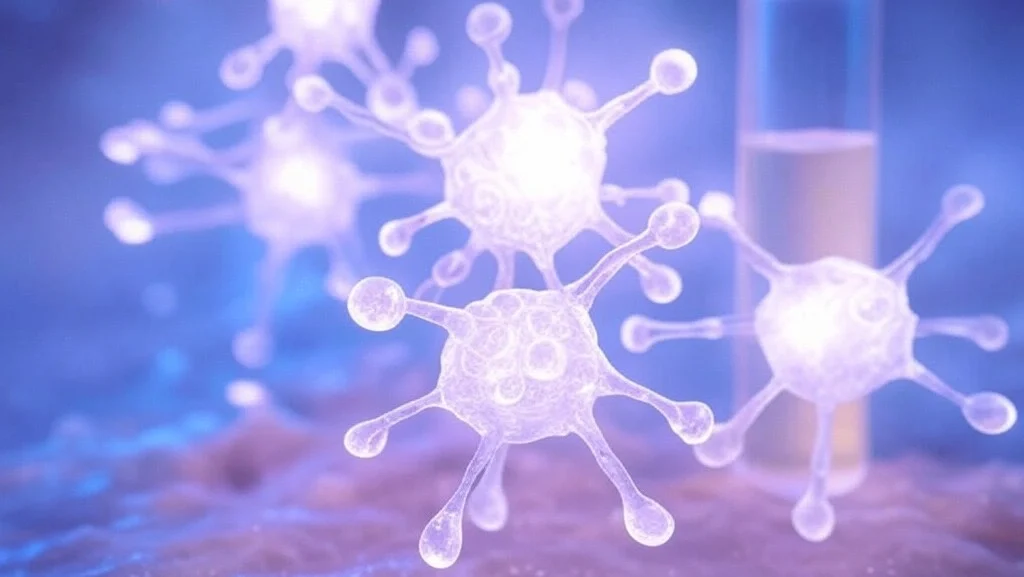
Neurotransmitters begrijpen: De rol van biologische amines in de gezondheid
Neurotransmitters play a crucial role in transmitting nerve signals and regulating various physiological functions. One of the most effective ways to measure these neurotransmitters is by analyzing the concentration of biogenic amines in platelets. This method is preferred over measuring serum values because platelet levels are relatively stable and unaffected by acute stress-related fluctuations in plasma levels. Additionally, measuring biological amines in platelets is more reliable than urine tests, as urine acidity can influence the concentration of free amines.
The Role of Biological Amines in the Nervous System
Neurotransmitters, including biological amines, function as chemical messengers between nerve cells. They are released from one neuron (presynapse), travel through the synaptic gap, and influence the adjacent neuron (postsynapse).
There are three primary classes of neurotransmitters:
- Biogenic amines:
- catecholamines (norepinephrine, epinephrine, dopamine)
- indolamine (serotonin)
- ethylamine (histamine)
- quaternary amine (acetylcholine)
- Amino acids
- Peptides
Synthesis and Metabolism of Neurotransmitters
- Catecholamines (norepinephrine, epinephrine, and dopamine) are derived from the amino acid tyrosine, which is obtained from dietary sources or synthesized from phenylalanine. The conversion of tyrosine to dopamine is a rate-limiting step requiring copper and vitamin C as cofactors.
- Serotonine is synthesized from tryptophan through hydroxylation and decarboxylation.
- Neurotransmitters are inactivated after their action through oxidation (by monoamine oxidase, MAO) and methylation (by catechol-O-methyltransferase, COMT). The breakdown of norepinephrine and epinephrine results in normetanephrine and metanephrine, respectively.
Functions and Influences of Biological Amines
Catecholamines influence a wide range of physiological processes, often working in conjunction with hormones.
- Dopamine and norepinephrine act as neurotransmitters in the brain and autonomic nervous system, regulating carbohydrate and fat metabolism.
- Epinephrine and norepinephrine are stored in the adrenal glands and released in response to stress, shock, or low blood glucose levels, affecting heart rate, blood pressure, and metabolism.
- Serotonine is involved in mood regulation, digestion, and various other functions.
What Biological Amines Can Be Measured?
The test that we provide measures the levels of one or more of the following neurotransmitters:
- Dopamine
- Epinefrine (adrenaline)
- Noradrenaline (Noradrenaline)
- Normetanefrine
- Serotonine
- Metanefrine
When Is a Catecholamine Test Useful?
Testing neurotransmitter levels in platelets can provide valuable diagnostic insights. Below are conditions linked to altered catecholamine levels:
Elevated Catecholamine Levels Are Associated With:
- Hypothyreoïdie
- Diuretic therapy
- Excessive alcohol consumption
- Hypoglykemie
- Hypoxia (low oxygen levels)
- Severe acidosis (high blood acidity)
- Cushing’s syndrome
- Myocardial infarction (heart attack)
- Hemolytic anemia
- Severe kidney diseases
- Lymphoma
Decreased Catecholamine Levels Are Associated With:
- Autisme
- Attention disorders (ADD/ADHD)
- Developmental delays in children
Breakdown of Specific Neurotransmitter Testing
Epinephrine in Platelets
Epinephrine is produced in the adrenal medulla and affects the sympathetic nervous system. Testing its levels can provide insights into conditions such as:
- Hypoglykemie
- Hoge bloeddruk
- Myocardial infarction
- Adrenal tumors (pheochromocytoma)
- Neuroblastoma
- Progressive muscular dystrophy
- Physical exhaustion
- Hypothyreoïdie
- Cushing's syndrome
Order a Test
Norepinephrine in Platelets
Norepinephrine is synthesized in sympathetic nerve endings. Testing for norepinephrine levels can help diagnose:
- Dysfunction of baroreceptor reflexes
- Hypertension due to pheochromocytoma
- Autonomic nervous system disorders
Order a Test
Dopamine in Platelets
Dopamine, released from sympathetic nerve endings and the adrenal glands, is associated with conditions such as:
- Stress-related hypotension
- Orthostatic hypotension
- Seizures
- Diminished ejaculatory function
- Excessive nighttime urination
- T-wave abnormalities (ECG findings)
- Schizofrenie
- Mania and depression
- Hypomagnesemia (low serum magnesium levels)
- Parkinson’s disease
- Tardive dyskinesia (involuntary, repetitive movements that typically develop after long-term use of certain medications).
Order a Test
Serotonin in Platelets
Serotonin is primarily produced in intestinal chromaffin cells and neurons. Elevated serotonin levels can indicate:
- Cystic fibrosis
- Ovarian cancer
- Local sprue
- Severe skeletal pain or sciatica
- Spasms of smooth muscles
- Bronchial adenoma
- Poor intake of food
- Celiac disease
- Whipple disease
- Stasis syndrome
- Chronic bowel obstruction
- Oat cell cancer of the respiratory system
- Long-term nutritional hypoglycemia
- Long-term insomnia
- Problems with MAO synthesis or excretion
- Malignant stomach lymphoma
- Highlighted manic phase of bipolar depression
Low serotonin levels are linked to:
- Depressie
- Small intestine resection
- Phenylketonuria
- Mastocytosis
- Hartnup disease
Very high serotonin levels can indicate:
- Lial tumor
- Pancreatic tumor
- Duodenal tumor
- Galt tumor
- Large malignant tumor
Order a Test
Clinical Alert: The Importance of Platelet Serotonin Testing
Platelet serotonin levels are crucial in detecting tumors that urine-based serotonin or HIAA assays may miss. Thus, platelet catecholamine and serotonin tests are recommended for individuals with:
- Vermoeidheid
- Stress-related disorders
- Mental health disorders
- Hyperactivity
- Depressie
- High or low blood pressure
- Hart- en vaatziekten
- Neurological disorders such as Parkinson’s disease
Conclusie
Neurotransmitter testing via platelet analysis offers valuable insights into a wide range of physiological and psychological conditions. Understanding the role of biological amines, their metabolic pathways, and their effects on health can help guide appropriate diagnostic and therapeutic interventions. If you experience symptoms related to neurotransmitter imbalances, consult your healthcare provider about testing options.




